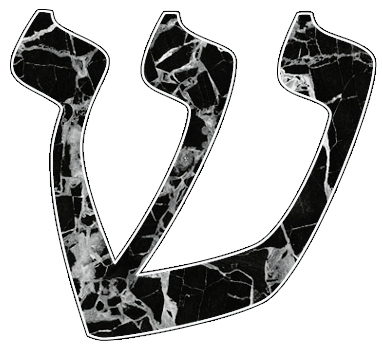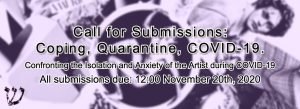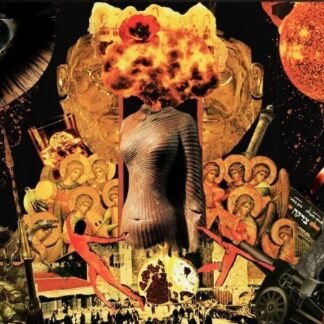This Studio Shamah article is [a section of] a transcript of a conversation which took place between P. Moshe Shamah, and Yonah ben Avraham, which occurred on July 8th, 2024 – Two months after the release of their book of poetry and art, Ohelibah: Quiet on the Mountain & Memory, published by Rabbi Adam Zagoria-Moffet of Izzun Books.
If you have yet to purchase your copy of Ohelibah, please contact us directly to buy a book in person in Jerusalem, or alternatively, via Amazon. All original pieces of artwork are available for purchase, and can be found on the shop page here.

MS: Talk to me, how’re you feeling two months since the day we finally released this project?
YA: To tell you the truth, it has been a bit surreal. My relationship to my own poetry has been a bit ephemeral in the past, as I typically write and publish via digital mediums. Holding a physical copy of a work has a bit of an edifying quality, and it is something I’m still working out my relationship to – how I really feel about it. In some ways it feels more real, in some ways it no longer feels like something I/we made. Objects are strange like that, being almost dropped out of time when vested with meaning or some significance. I suppose I anticipated this feeling a bit when writing my Author’s Note, and it has come to pass. I am, of course, appreciating the positive reception of the work – older poetry is gaining a new life in my mind through the eyes of others. So I suppose I feel pretty good about the project.
MS: I can empathize with the surreal nature of it all. After two years of transmuting emotion and energy into this, it’s a bit hard to parse out one’s feelings when smelling the pages of our book, crisp, new, and physically existent. But before we get ahead of ourselves. Let’s just start with the basics. What is Ohelibah, and what led you to pick the name?
YA: When I was first mulling over the name of a collection about Jerusalem, I thought I might call it something like “The Great City” – a reference to Jerusalem, but also to Nineveh, in correspondence with my name and certain ideas I have regarding the story of Yonah. However, I came across the name Ohelibah while doing some learning, and the rich implications of the word itself flooded my mind – ‘my tent is in here,’ ‘heart,’ etc. It spoke to my experience as a ger (convert) and an oleh (immigrant to Israel), and holds within it teeming myriads of implication and such rich imagery. As I explored the provenance of the name, I found that it was a curse ascribed by Ezekiel, calling to Jerusalem as a prostitute. That did not sit well with me, and I resolved that maybe a book of poetry so replete with love for Jerusalem might perform some small work in rectifying the prophet’s admonition.

MS: And given our current juncture of time and place, which of these poems do you feel speaks to you the most at this point in time – and if the answer isn’t the same, which collage speaks to you the most during this point in time?
YA: Words to My Loved Ones in the Nuclear Fallout, the final poem of the book, speaks to me frequently, and has over the past year. That and Dumah (דומה). I was abroad for the last year, and found that the only way to keep some modicum of sanity was, to a degree, a turn inwards, towards the cultivation of an internal silence and the gentle development of and tending to a flicker of hope. It took me a while to see that your art already connected the two poems, but I am grateful for your insight and foresight in making that link which I had kept privately for the last two years. On the flipside, the collage I’ve been connecting to the most recently is Glimpses, I suppose because the poem and the piece remind me of the sheer amount of life that happens between headlines. It grounds me in a way, reminds me of what was, what is, and what can be, beyond and before the fires.

MS: Can I ask you specifically about what was happening in your head when you wrote Words to My Loved Ones in the Nuclear Fallout? It’s a powerful poem to end on, and while I have my own reading and interpretation of the poem and subsequent flourish, I’m curious if you could talk a bit about what led you to write that poem, because I think whoever reads this transcript will gain something from that story in particular.
YA: So you were actually there for part of it! It was about two years ago, literally the night before Russia invaded Ukraine. We’d been sitting at this little roadside bar in Nahlaot, catching up and talking about the state of the world. At one point, both of our phones dinged, we checked them, and it was a notification talking about Boris Johnson getting up before the world and making a very harsh speech warning Russia. We both figured that that was that – if BJ was getting his hackles up and actually appearing like a force to be reckoned with, the invasion must be underway. You went home to prepare for what would inevitably begin early that morning, and I sat there and wrote the poem.

MS: When you tell that story, the emotion and the memory are so crisp, I suppose it’s just challenging still, at this point, to accept that these events really occurred, that this is our timeline. And what about two years ago, when we first began this project, what spoke to you then?
YA: That is a difficult question. I think, maybe, Process and Midnight Lament. Those were the result of working through some ideas of religion, spirituality, obligation, responsibility, experience – HaShem really, or rather a person’s relationship to the ineffable. I still return to them, but sparingly. I’ll refer back to my answer to your first question – perspectives shift, like a kaleidoscope, and I am not entirely sure where my mind was two years ago. Certainly in a different constellation than it is now.
MS: That’s a great point. In that sense, poetry isn’t so different in essence to a collage, a whole made of many parts – and at different times, one’s eyes are most attracted to and impacted by one fragmented as opposed to another.
YA: I’ve got one for you, since you brought it up – you’ve described your artform before as a way to organize chaos, to find beauty between and in the harmony of disparate images. Thinking about these last two years of work on a specific project, do you have an idea of what a collage describing the undertaking might look like?
MS: Oh don’t ask me that, it’s such a challenging question. I don’t know, it was a spirited, frustrating, and inspired experience of constant deconstruction and reconstruction. I really had to wrack my mind to produce works that portrayed exactly what I was aiming for – maybe in Volume 2 I’ll include a piece in my artist’s forward in homage to the first volume – stay tuned.

YA: So then tell me a little bit about your process, specifically regarding how you take a piece of poetry and create a collage out of it. How does the conversation take place – are there patterns, or is each its own form of discourse?
MS: So, I’d say there’s definitely a bit of an independent and unique discourse which occurs between each poem and the process it takes to make each one – some of that has to do with the way that I read the poem in and of itself, if I had an immediate visual click. For others, I had to surround myself with about a thousand elements (cut-out images), and I repeated the poem to myself over and over, staring out into the images and picking up a few which resonated or caught my eye, as correlative to each word, sentence, and stanza. Some of the dialogues with the poems were rather immediate, and others took months to navigate how to make a piece that doesn’t repeat, but rhymes and parallels the text. The process for the poems in Memory was quite different as a whole. Whereas for the poems in the Quiet on the Mountain cycle, I had to engage in the aforementioned process of dissection, oration, creation and recreation – as is naturally the cause with a collage of many elements reflecting a poem of many words – the ink flourishes of the second cycle were a different animal entirely. For Memory, I was able to read through each poem, close my eyes, and think of a single word which summed up the essence of the work, and through that, create an interconnected web of works which tell a narrative story from start to finish in no particular order, as opposed to pieces which primarily inhabit the world of their respective poem in and of themselves.
YA: And would you say that as an artist, how has your relationship to your medium changed over the last few years?
MS: I don’t know how exactly to answer, it’s a bit of a challenging question – because it’s still an active process. It’s become a bit more intense, because the fragmented and fractured nature of the world which led to my choosing collage and mixed-media as a primary media, has only continued full steam ahead, and has become very personal. The full-scale war in Ukraine, Hamas’ attack on October 7th, the ensuing chaos in the world – on one hand it’s intensified the need to engage with the medium, and on the other hand it’s certainly caused some creative clouding.
But let me throw the question back at you, why poetry as opposed to prose or narrative fiction? And how has your relationship with poetry as a craft and medium changed, as we know that the date that the poems in Ohelibah were written span many years?
YA: So I’ve actually written a few short stories, but poetry is what I return to. It began as a way to process feelings and images – in fact, my initial editorial board (the few friends that I spam with new poetry at 3am) have made a distinction in my work between ‘therapy poems’ and those that are actually accessible beyond the corners of my life. What I’ve sort of thought about this year is how poetry is a negotiation with silence. It is the tracing of movement and thought between words and symbols, and, for me, comes from a place of un-thinking. I’m not quite sure how to communicate it, but poetry or the poetic process or what-have-you comes from somewhere else, not the place of speaking.
MS: Given the state of the world today, I can understand your perspective and why poetry in particular serves as a good avenue of therapy to be honest.

YA: So that actually ties into a question I had for you, which is what do you hope this book might do for a reader, given both our current cultural climate and in the moments where a person may want to forget about the world around them.
MS: So far as I’m concerned, neither our book project, nor Studio Shamah, are the final destination for me, or for us. If anything, my goal is not to give our readers and viewers a way to “step out” out of the world for a moment of reprieve, but rather to dive into this world, and forge a future for ourselves. The ultimate goal of Ohelibah, as well as any future books we publish (and yes, there will definitely be more to come), is to kickstart a Jewish cultural renaissance – and help bring about a space and a movement where young Jews from various countries and backgrounds can find an avenue through which they can express themselves through art, music, literature and poetry, etc.
It’s particularly and especially because of the current climate of the world, and the ensuing fragmentation of our sphere, that we have to not only fight for both justice and our future – but to give purpose to that fight. This book should play a modest role in giving our readers the inspiration required to participate in a new Jewish Golden Age.
-This ends the section of the transcript for Part I of this conversation-
To stay in the loop about future articles, events, or new pieces added to the Studio Shamah shop page, please follow us on Facebook and Instagram
The publisher of Ohelibah, Izzun Books, can be found here

Yonah ben Avraham is a Jewish activist, educator, and poet. Although having lived most of his early life on Cape Cod in Massachusetts, ben Avraham returned to Jerusalem in 2016. As a leader in the Vision movement, ben Avraham works towards justice, peace, and liberation in the Land and beyond. He is currently enrolled at Harvard University, where he studies anthropology and the history of religions.
P. Moshe Shamah is a Jerusalem based artist and researcher of the human condition. His work aims to capture the convergence of old and new, of antiquity and futurism, as it relates to the Jewish tradition, Sepharadi culture and world history. Bridging the gap between mixed-media collage and calligraphy, or more broadly, the art of words, Shamah aims to stimulate dialogue across the breadth of cultures and thought traditions.








